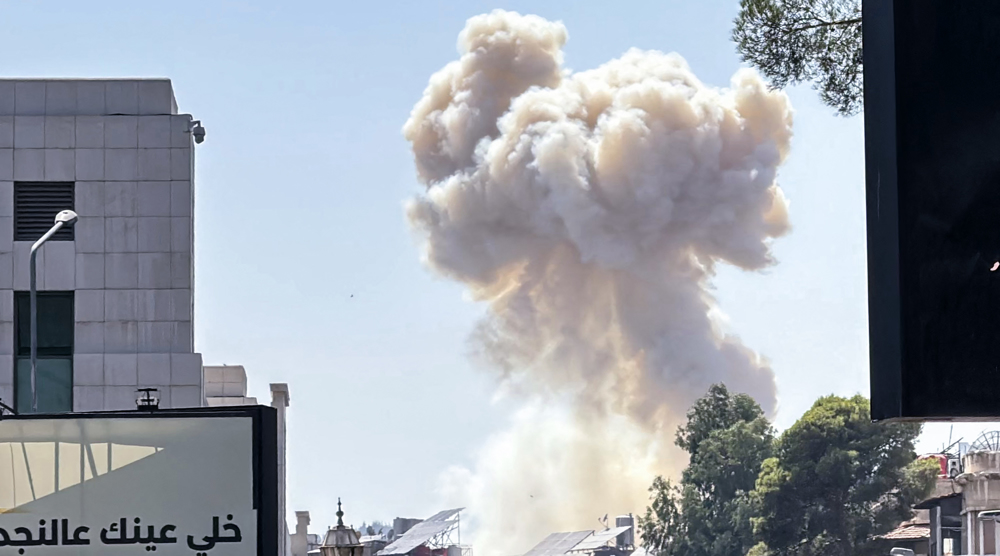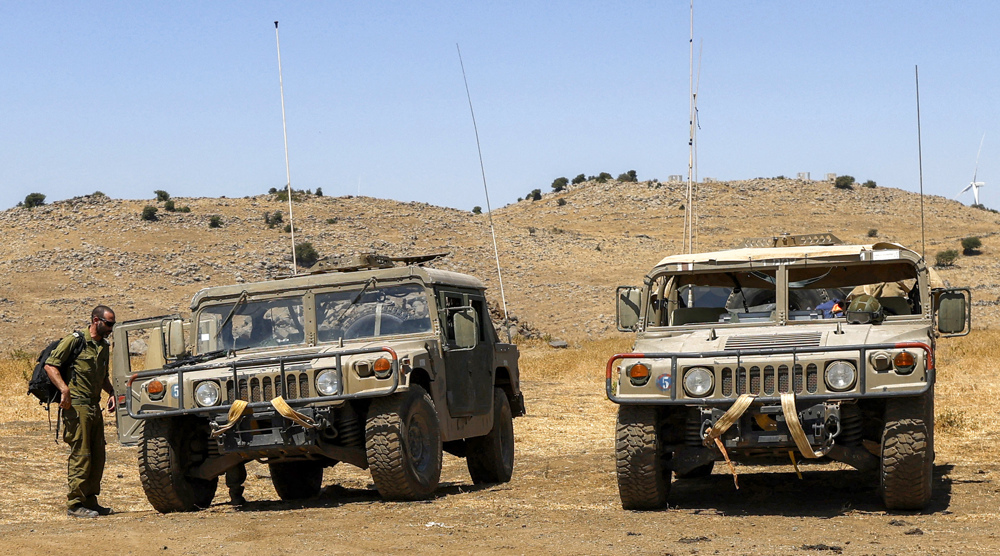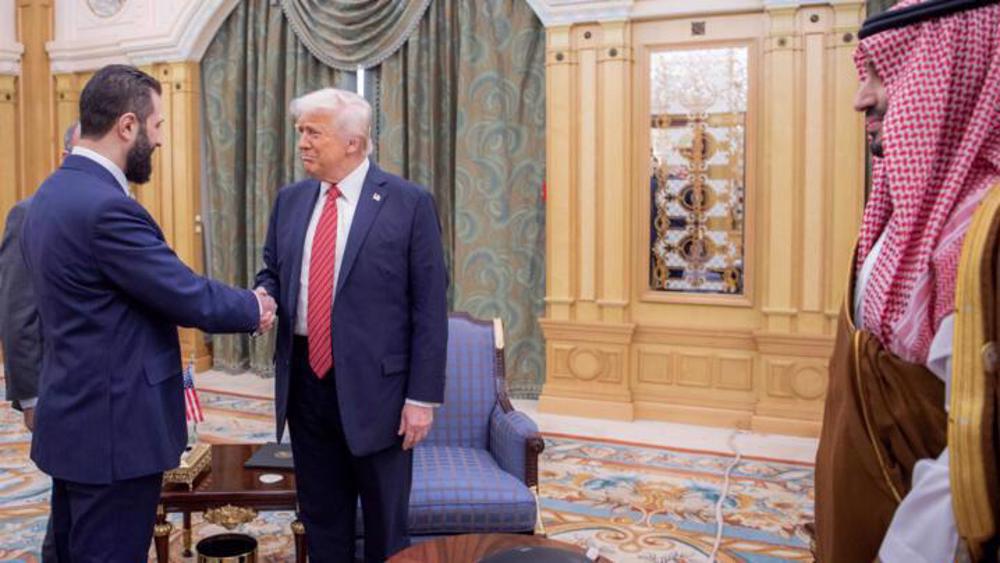The Israeli military has occupied several towns and areas south of Damascus, positioning its troops and tanks approximately 10 kilometers from the outskirts of the Syrian capital.
This comes as the Hayat Tahrir al-Sham (HTS) regime remains silent in the face of Israeli strikes and incursions.
Media outlets, citing sources, reported that an Israeli ground unit, consisting of more than 15 military and armored vehicles, conducted an incursion into southern Damascus from the occupied Syrian Golan Heights.
Witnesses and local residents observed Israeli military and armored vehicles entering the southern suburbs of Damascus on Thursday morning, situated 10 kilometers from the capital.
Sources indicate that Israeli forces have now entered the"Qatna" area in the capital’s countryside as well.
Additionally, three Israeli helicopters landed troops in the Syrian village of Yafour, located near Damascus. Separately, Israeli army patrols have been deployed to the village of Rahle, located west of Damascus on the Lebanese-Syrian border, and were also seen in the Ain Deker and Saysoun areas along the Yarmouk River in southern Daraa Governorate.
These developments follow Israeli airstrikes on Wednesday that targeted the military headquarters of the HTS regime in Damascus.
Israeli minister for military affairs Israel Katz stated that the military “struck the entrance of the Syrian regime’s military headquarters in the area of Damascus.”
The Israeli military reported targeting a"military site" near the presidential palace in Damascus, emphasizing its ongoing strikes against military assets of the Syrian regime. Sources claim that approximately 200 raids have significantly diminished the Syrian army's capabilities.
Katz warned the Syrian interim regime to withdraw its forces from the southern Druze-majority city of Suwayda, where intense clashes have erupted recently between the Druze community and Bedouins, who are Sunni Muslims.
Violent confrontations between HTS gunmen and members of the Druze community in Syria have resulted in numerous casualties, raising concerns about potential sectarian violence. The Druze minority historically supported the government of former President Bashar al-Assad and opposed Israeli occupation and expansionist policies, particularly in the Golan Heights.
Israel's recent wave of airstrikes has provoked strong condemnation from global and regional leaders, as well as international organizations. The UN chief spokesman called for an immediate halt to all violations of Syria’s sovereignty and territorial integrity.

Iranian Foreign Minister Seyed Abbas Araghchi denounced the attacks as reckless and aggressive, labeling Israel a"rabid regime" that only understands the language of force.
The Palestinian resistance movement Hamas urged global mobilization to confront Israel’s"organized terrorism," while Yemen’s Ansarullah said Israel is attempting to divide Arab and Islamic nations to solidify its regional dominance.
Hezbollah echoed these concerns, asserting that Israel’s strategy is designed to impose hegemony across the region.
Condemnations also arose from Russia, China, Oman, Lebanon, Turkey, and the Persian Gulf Cooperation Council.

Ali Rizk, a security and political analyst from Beirut, previously informed Press TV that Israel aims to divide and fragment Syria by supporting separatists.
These developments occur as the UK and EU states have started gradually lifting sanctions on Syria since the beginning of this year.
Recently, US President Donald Trump announced a decision to lift all sanctions against the regime of Syria's self-proclaimed president, Abu Mohammed al-Jolani, in exchange for normalizing relations with Israel.

Jolani has assured US-led Western countries that Syria will “normalize relations” with Israel, recognize the regime, and exchange ambassadors by the end of 2026.
Reports suggest that the HTS-led regime may also hand over the occupied Golan Heights to Israel as part of a forthcoming normalization deal with the country.

